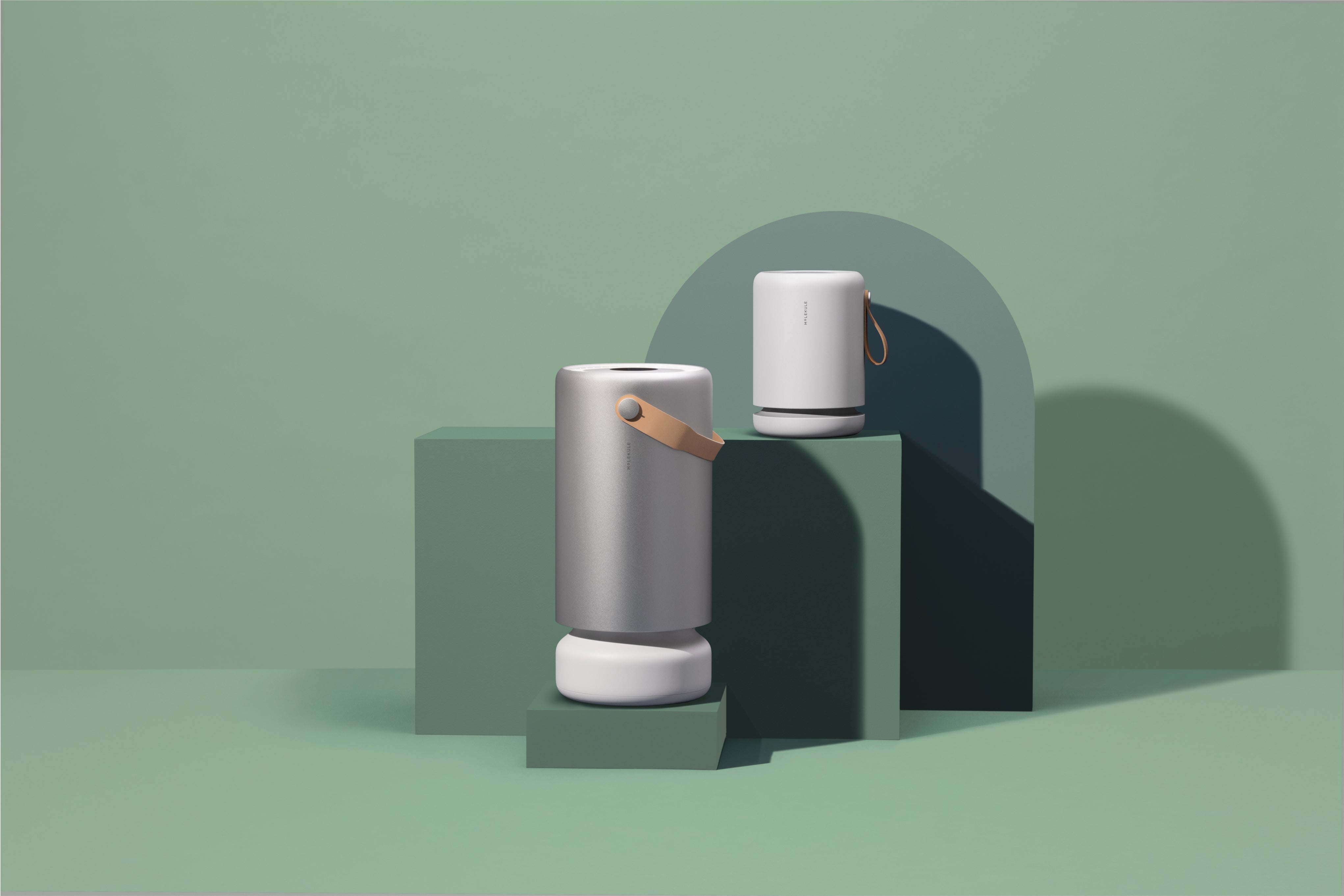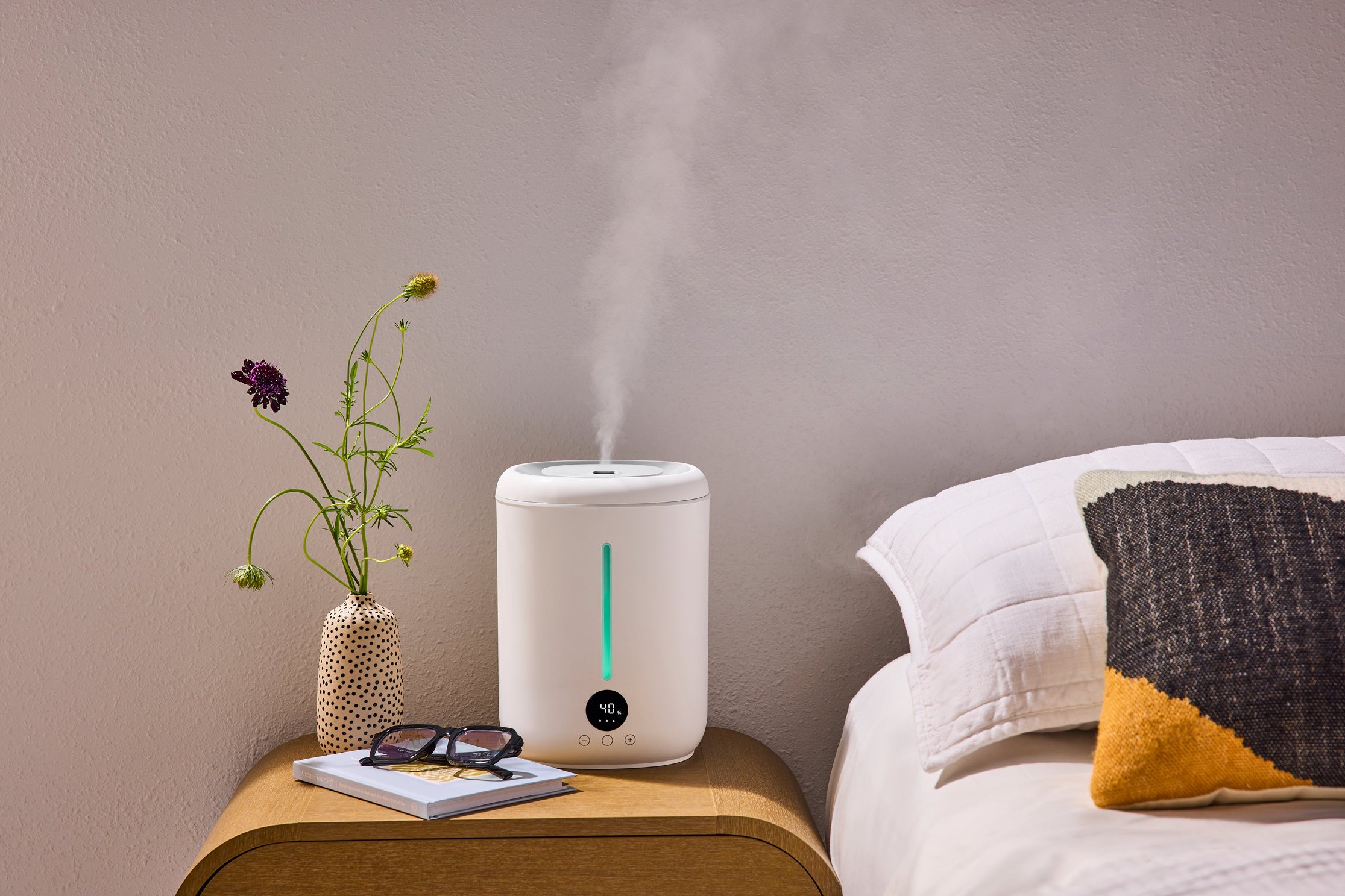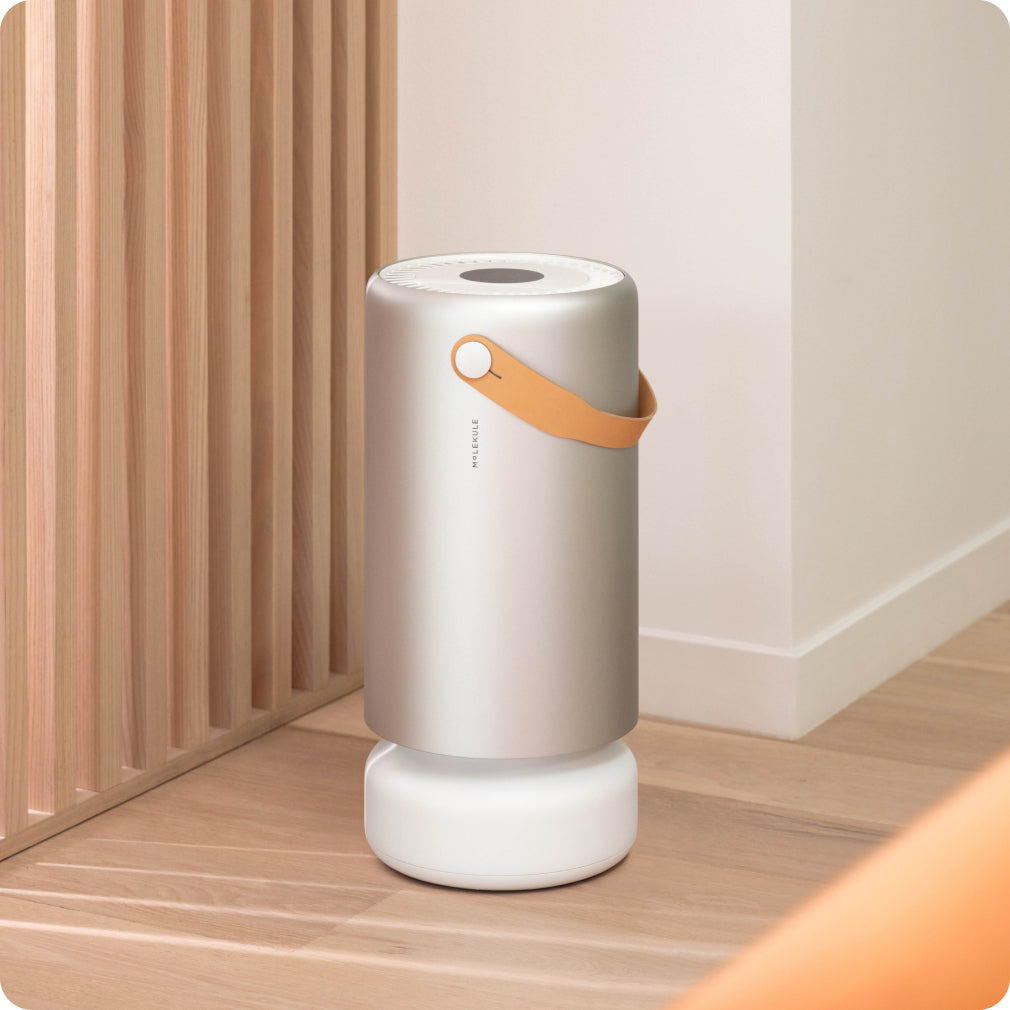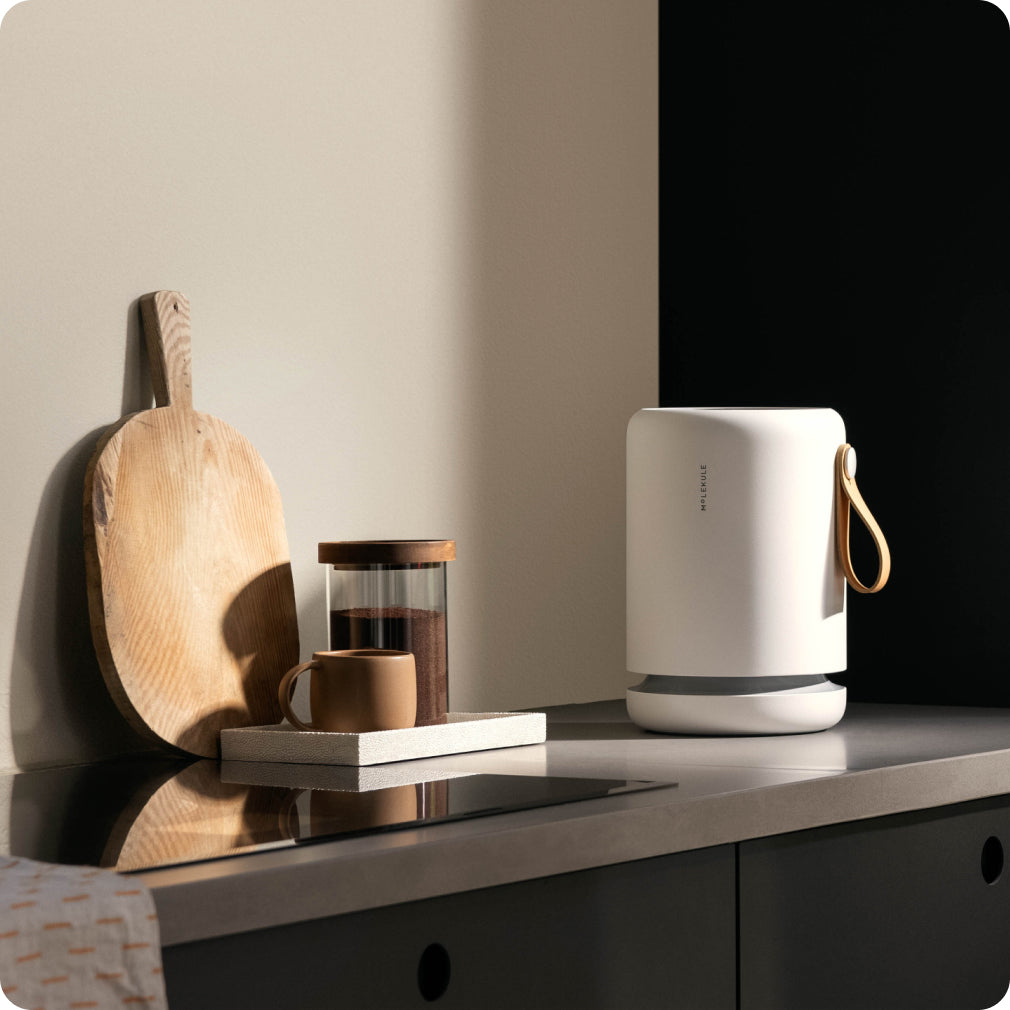You love your pet, but sometimes you may not love the way your pet smells. Sometimes it is the natural scent of the pet. Other times, it could be urine/feces, medical problems or a dirty tank/cage. The best way to deal with odor problems is to treat the cause, but they can be hard to remove entirely. An air purifier is a great way to remove bad smells from the air, leaving fresh-smelling air in its place.
Not every type of air purifier is effective at removing odors. In this article, you will find the various reasons your pet might be having odor issues. Then evaluate which air purifier technology is the best way to eliminate odors from your house.
General causes of pet odors
Most pet odors come from a few causes. Understanding them can help you control or remove those odors. Remember that pet odors are different from pet dander, which you may be allergic to.
- Mammals may have scent glands that secrete a strong-smelling oil, or they may spray urine to mark their territory. Training and bathing can help with the issues.
- Health problems can cause a wide range of odors: skin infections, incontinence, bad breath or other smells can be a sign that it is time to visit the vet.
- Even the most well-trained pets have accidents in the house from time to time. Smells can persist in carpets or on furniture long after you have cleaned it up. A blacklight is a handy way to spot old urine stains so you can deep clean them.
- Excess food or other debris can accumulate in a cage or tank, where it can rot and become smelly. Frequent cleaning can prevent these problems.
- A poor diet, such as feeding too many table scraps to dogs, can cause digestive issues with a particularly loathsome smell.
Dog odors
Dogs can definitely get smelly if it has been too long since their last bath, especially if they spend a lot of time outside. Clean fur smells better than dirty fur, and it can help keep your dog’s coat and skin healthy. Just be careful not to wash your dog too often. This can strip oil from the skin and fur, according to the American Kennel Club. Bedding should be cleaned often. Removable covers can make this much easier.
Urine and fecal accidents should be cleaned up immediately. Enzyme cleaners made for removing pet odors are effective, but a badly stained carpet might need a deep cleaning with a carpet cleaner to fully get the smell out.
Some dog odors are a sign of an illness. Smelly fur or bad breath (which could be a sign of a life-threatening illness, according to the American Veterinary Medical Association), or any other odors that are out of the ordinary, should be checked out by a vet. Not only will it help you find a solution to the smell, it will ensure your dog stays healthy.
Cat odors
The litter box is a prime source of cat odor. Frequent cleaning of litter will keep odors at bay. Keep bedding clean as well. It is usually not necessary to bathe a cat.
Just as with dogs, incidents of urine or feces outside the litter box should be cleaned up immediately with enzyme cleaner. Litter box training is vital to keeping cat odors to a minimum. An unusual number of incidents from an otherwise well-trained cat could be a sign of a medical problem, according to PetMD.
According to The Humane Society or the United States, putting a layer of baking soda beneath the litter can reduce odors. Unusually strong smelling urine or feces might be a sign of a medical problem. Bad breath can also be caused by dental disease, so in these cases visit your vet.
Small mammal odors (mice, rats, guinea pigs, rabbits and ferrets)
A metal cage is better than an enclosed plastic one. Plastic can trap and hold smells, while a mesh cage will not.
Wood shavings in a cage absorb odors and can be easily changed out. Clean out and replace old shavings at least weekly.
Small mammals can usually be trained to use a litter tray, which restricts odors and makes cleanup much easier.
Many small mammals have scent glands or other natural odors. Bathing them is generally not necessary, and can cause them to overproduce their natural oils or secretions.
If you notice a strong odor that is out of the ordinary, make an appointment with your vet. It could be a sign of an illness.
Reptiles and amphibians odors (lizards, snakes and turtles)
Reptiles and amphibians do not secrete odors the way mammals do. However, their feces and urate (dehydrated urine) do have an odor. Cages and tanks should be kept clean, and water for amphibians should be changed out regularly.
Fish odors
A healthy fish tank should be nearly odorless. Unpleasant smells coming from a fish tank could be due to dead fish, dead plants, or uneaten food. Remove any dead materials from the tank, and be careful not to overfeed.
A smelly tank could also be caused by a filter that is not sufficient for the size of the tank, or that has become clogged. Clean filters and make sure they are rated for your tank. Even with a good filter, a 15 to 20 percent water change done regularly can help keep a tank clean and healthy.
Air purifier for pet odors
Whatever the source, the odors coming from your pet take the form of volatile organic compounds (VOCs). These are gaseous pollutants made of very small molecules. If cleaning up has not solved the problem and you have ruled out medical issues, an air purifier that deals well with VOCs is a good tool for eliminating pet odors. Some air purifiers are very good at removing or destroying VOCs, while some barely do anything with VOCs.
Ozone generator
Ozone generators attempt to remove VOCs from the air by breaking them down into different molecules. Most importantly, ozone itself is a pollutant that can exacerbate respiratory issues. The EPA recommends against using them and has concluded that though odor may be perceived to be masked by the smell of ozone itself, “ozone is not effective at removing many odor-causing chemicals.” If one is used to try and remove pet odors, no one can be in the room while it is operating, and the room must be aired out afterward. Clean up any substances that settle out of the air, as these could be harmful, especially to pets who walk in them.
Carbon filter
An air purifier that uses activated charcoal is designed to help with most VOCs, including pet odors. Carbon or charcoal filters work by capturing molecules and trapping them, like a million keyholes capturing keys. Unfortunately, eventually all the keyholes fill up, and the molecules are able to pass through the filter. For this reason, carbon filters must be changed regularly. This can be expensive and annoying, making them not ideal for a long-term solution.
HEPA filter
A HEPA filter is designed to remove particles from the air, but the molecules in the VOCs from pet odors are too small. They pass right through HEPA filters, so a HEPA filter alone will not be effective on pet smells.
Our recommendation
Though carbon air filtration may sometimes be an acceptable short-term solution for pet odors, the Molekule PECO technology offers a powerful, long-term solution. The PECO technology has been independently tested for its effectiveness against the airborne chemicals (which are volatile organic compounds, or VOCs) that make up odors. Other mechanical filtration technologies like HEPA are designed to address particles alone and cannot address VOCs. Molekule’s PECO filters can destroy VOCs that make up persistent odors from your furry or not so furry pals.







